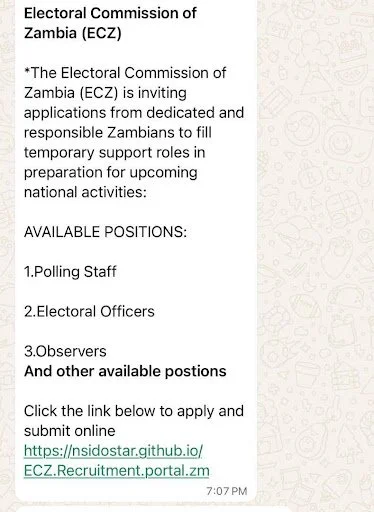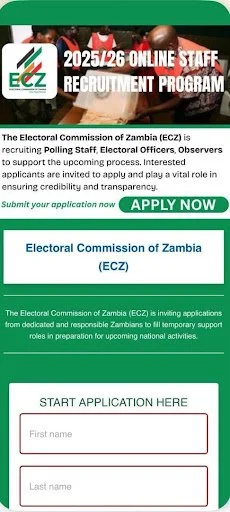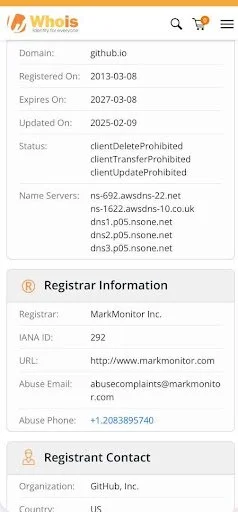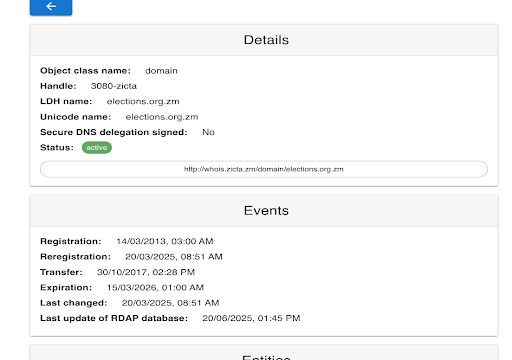FALSE: The Electoral Commission of Zambia did not announce the use of two voter cards in upcoming elections . The commission disowned the announcement
A post on Facebook showing that The electoral commission of Zambia (ECZ) has announced that 2026 elections will be conducted using two different voters’ cards – the 2021 cards and the new ones currently being issued—is FALSE.
ECZ did not announce the use of two voters’ cards for the 2026 elections; the ongoing voter registration will cover new voter registrations, replacement of lost or damaged voter cards, and transfers. Citizens who already possess voter cards issued in 2020 or who registered during the continuous registration process do not need to register again, as their cards remain valid for the 2026 election.
On 17th September, a Facebook user shared a blog post claiming that the Electoral Commission of Zambia (ECZ) had announced the use of two different voter’s cards for the 2026 elections. The blog post was accompanied by two images: the first was a screenshot from the News Diggers! newspaper dated 8th September 2025, with the headline, “2021 voters’ cards still valid for 2026—ECZ.” Above this headline appeared a photo of ECZ Chief Electoral Officer, Brown Kasaro.
Screenshot of News Diggers’ article on ECZ Press Briefing
An image search confirmed that the picture originated from a News Diggers! newspaper headline dated 8th September 2025. The article reported on ECZ’s ongoing voter registration exercise and the status of the 2021 voters’ register. However, the content did not state that the ECZ would allow two different voter cards to be used in 2026.
In a press release issued on 18th September 2025, the ECZ condemned this claim as false and misleading, clarifying, “There is only one official voter’s card which has been approved and is issued by the Commission.” The Commission further explained that individuals who registered in 2020 or during the Continuous Registration of Voters (CRV) exercise from June 2022 and already hold valid cards do not need to register again.
According to the ECZ, voter cards issued during the 2020 registration and subsequent CRV (from 2022 onwards) remain valid until 2030. The current exercise is focused on updating the register and aligning the card design and logo with ECZ’s new branding—not on creating a second, parallel system. The Commission also assured the public that its system incorporates verification and deduplication measures, including the use of NRC numbers, fingerprints, and portraits, to prevent multiple registrations or ghost voters.
Therefore, the allegation that the ECZ will conduct the 2026 elections using two different voter cards is false. The Commission has confirmed that there will be one harmonised system, with existing voter cards issued in 2020 and during CRV remaining valid until 2030. Suggestions of dual registers or “rigging” are unfounded.
This fact-check was produced by Mzeziti Mwanza as part of the African Fact-checking Alliance incubation programme. It was produced with peer mentorship from Code for Africa’s fact-checking initiative, PesaCheck, with financial support from Norway. AFCA mentorship respects the journalistic independence of the researchers, offering access to advanced techniques and tools. The editorial decision remains with CYLA.











